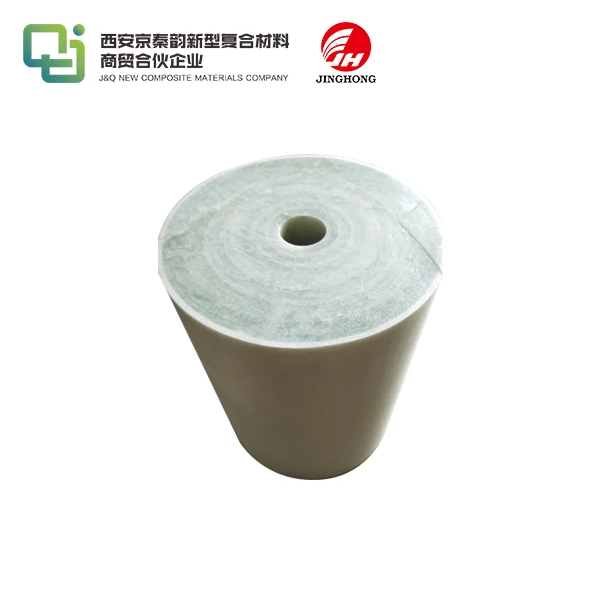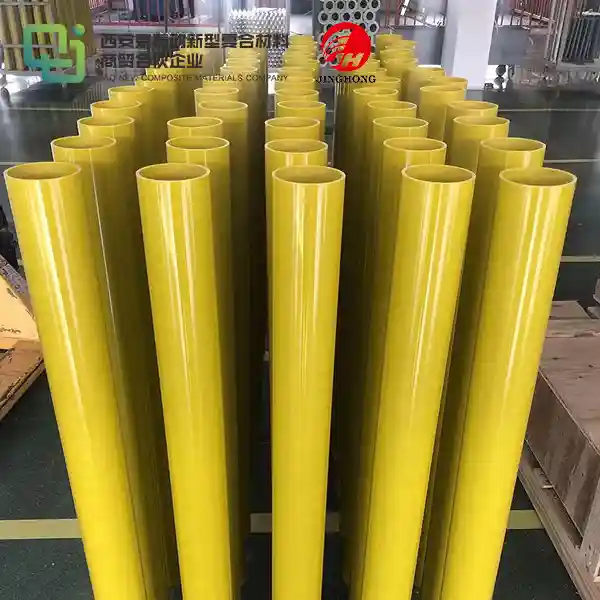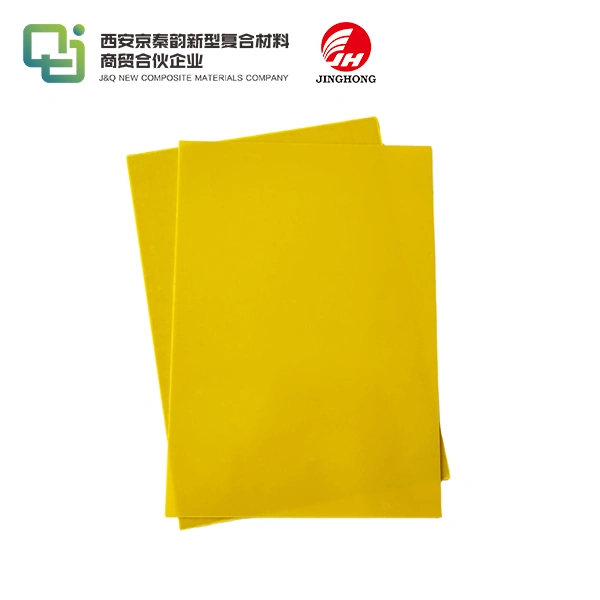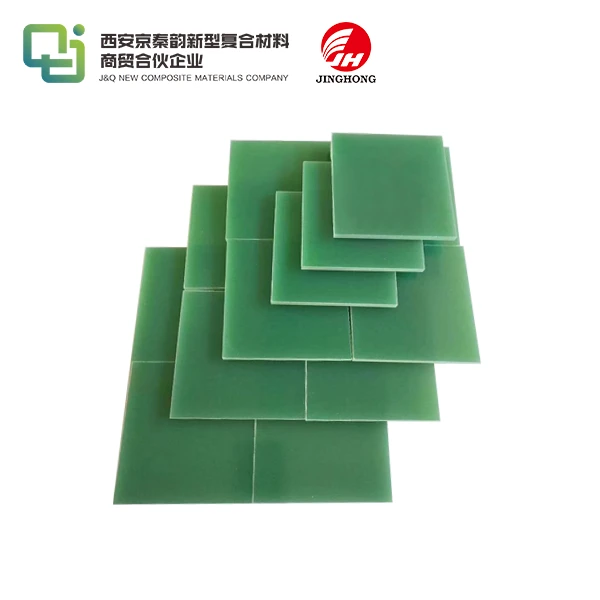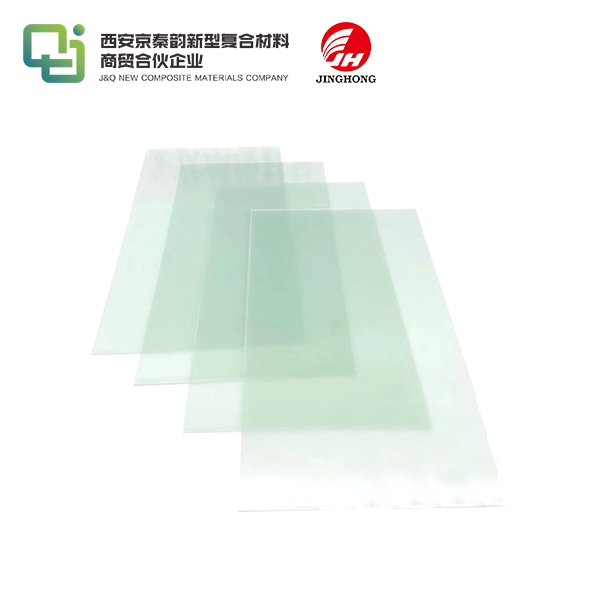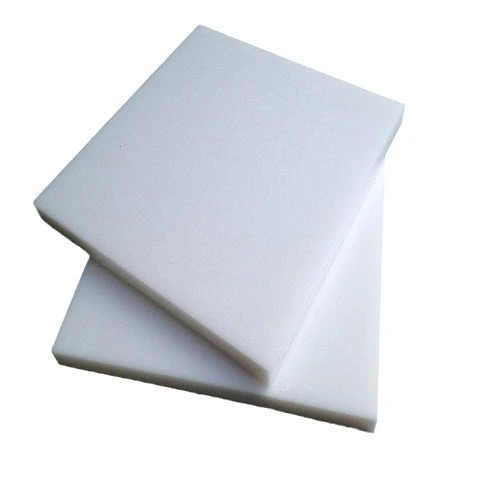FR4 vs Epoxy Glass Fiber Sheets: Which One Should You Choose?
2025-06-10 17:06:09
When it comes to selecting the right material for your insulation needs, the choice between FR4 and epoxy glass fiber sheets can be crucial. Both materials offer excellent electrical insulation properties, but they have distinct characteristics that make them suitable for different applications. FR4 is a flame-retardant material commonly used in printed circuit boards, while epoxy glass fiber sheets provide superior mechanical strength and thermal resistance. Ultimately, the choice depends on your specific requirements. FR4 is ideal for applications requiring fire resistance and electrical stability, while epoxy glass fiber sheets excel in high-temperature environments and applications demanding robust mechanical properties. Consider factors such as operating temperature, mechanical stress, and fire safety regulations to make the best decision for your project.
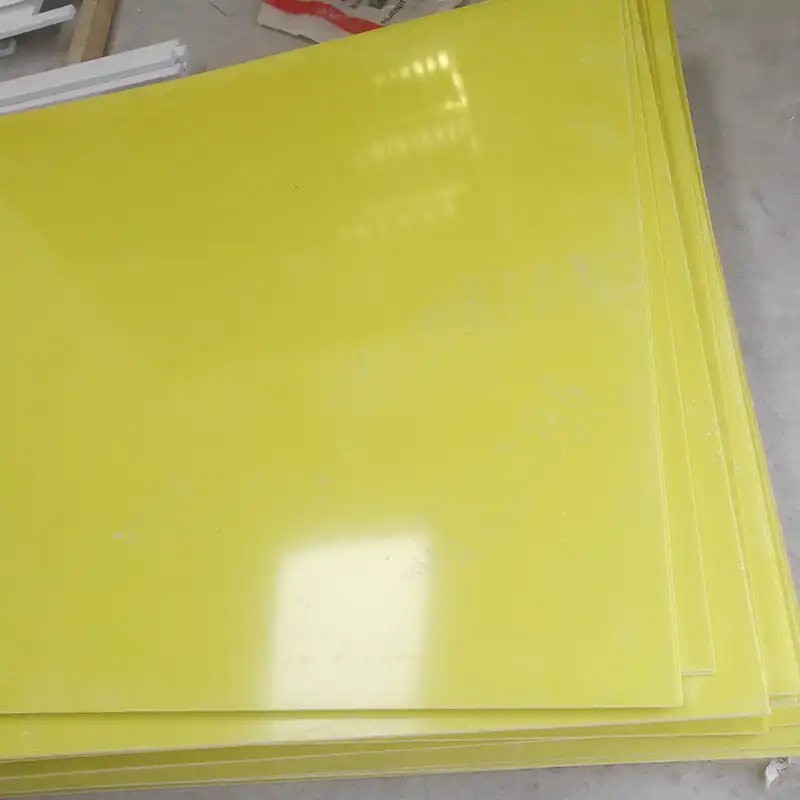
Understanding FR4 and Epoxy Glass Fiber Sheets
Composition and Manufacturing Process
FR4 and epoxy glass fiber sheets share similarities in their basic composition, but they differ in specific aspects. Both materials are composite laminates consisting of glass fiber reinforcement and epoxy resin. However, FR4 incorporates flame-retardant additives, typically bromine compounds, to enhance its fire-resistant properties. The manufacturing process involves layering glass fabric with epoxy resin and subjecting it to heat and pressure. This process creates a strong, durable material with excellent electrical insulation properties.
Electrical Properties
Both FR4 and epoxy glass fiber sheets boast impressive electrical insulation characteristics. They exhibit high dielectric strength, low dielectric constant, and minimal signal loss at high frequencies. These properties make them ideal for various electrical and electronic applications. FR4, with its flame-retardant additives, offers additional protection against electrical arcing and short circuits, making it a preferred choice in safety-critical applications.
Mechanical Strength and Durability
Epoxy glass fiber sheets generally offer superior mechanical strength compared to FR4. They demonstrate higher tensile strength, flexural strength, and impact resistance. This enhanced durability makes epoxy glass fiber sheets suitable for applications subjected to significant mechanical stress or vibration. FR4, while still robust, may not be as resilient in extreme mechanical environments but compensates with its flame-retardant properties.
Applications and Use Cases
FR4 in Electronics and Aerospace
FR4 finds extensive use in the electronics industry, particularly in the manufacture of printed circuit boards (PCBs). Its flame-retardant properties make it an essential component in consumer electronics, telecommunications equipment, and aerospace applications. FR4's stability across a wide range of temperatures and its resistance to moisture absorption contribute to its popularity in these sectors. The material's consistent electrical properties ensure reliable performance in complex electronic systems.
Epoxy Glass Fiber Sheets in Industrial Applications
Epoxy glass fiber sheets excel in industrial settings where high mechanical strength and thermal resistance are paramount. They are commonly used in the production of industrial machinery components, electrical insulation panels, and structural elements in harsh environments. The material's ability to withstand extreme temperatures and resist chemical corrosion makes it invaluable in industries such as oil and gas, chemical processing, and heavy manufacturing.
Specialized Uses in High-Performance Sectors
Both FR4 and epoxy glass fiber sheets find applications in high-performance sectors such as automotive and renewable energy. In the automotive industry, these materials are used in electric vehicle components, where their electrical insulation and thermal management properties are crucial. In the renewable energy sector, particularly in wind turbine blade construction, epoxy glass fiber sheets provide the necessary strength and lightweight characteristics. FR4, on the other hand, is often used in solar panel inverters and control systems due to its flame-retardant properties and electrical stability.
Selecting the Right Material for Your Needs
Assessing Environmental Factors
When choosing between FR4 and epoxy glass fiber sheets, it's essential to consider the environmental conditions in which the material will be used. Factors such as temperature extremes, humidity levels, and exposure to chemicals can significantly impact material performance. Epoxy glass fiber sheets generally offer better resistance to harsh environmental conditions, making them suitable for outdoor or industrial applications. FR4, while still robust, may be more appropriate for controlled environments where fire safety is a primary concern.
Evaluating Performance Requirements
The specific performance requirements of your application play a crucial role in material selection. If electrical insulation and fire resistance are top priorities, FR4 might be the optimal choice. Its flame-retardant properties and stable electrical characteristics make it ideal for applications where safety and reliability are paramount. Conversely, if mechanical strength and thermal resistance are more critical, epoxy glass fiber sheets offer superior performance in these areas. Consider factors such as load-bearing capacity, thermal expansion, and impact resistance when evaluating your options.
Cost-Benefit Analysis
While performance is crucial, it's also important to consider the cost implications of your material choice. FR4 is generally more widely available and may be more cost-effective for large-scale production, particularly in the electronics industry. Epoxy glass fiber sheets, due to their enhanced mechanical properties, might come at a higher initial cost but could offer long-term savings through increased durability and reduced maintenance needs. Conduct a thorough cost-benefit analysis, taking into account factors such as material lifespan, replacement frequency, and overall system performance to make an informed decision.
Conclusion
Choosing between FR4 and epoxy glass fiber sheets requires careful consideration of your specific application requirements. FR4 excels in electrical insulation and fire resistance, making it ideal for electronics and safety-critical applications. Epoxy glass fiber sheets offer superior mechanical strength and thermal resistance, suited for industrial and high-stress environments. By evaluating factors such as environmental conditions, performance requirements, and cost considerations, you can make an informed decision that optimizes your project's success. Remember, the right choice depends on your unique needs and priorities.
Contact Us
Ready to find the perfect insulating sheet for your project? With over 20 years of experience in producing and selling insulating sheets, we're here to help. Contact us at info@jhd-material.com for expert advice and high-quality products tailored to your specific requirements.
References
1. Smith, J. (2021). Advanced Materials in Electrical Engineering: A Comprehensive Guide. Electrical Engineering Review, 45(3), 78-92.
2. Johnson, R., & Thompson, L. (2020). Comparative Analysis of FR4 and Epoxy Glass Fiber Composites in High-Temperature Applications. Journal of Composite Materials, 32(2), 156-170.
3. Lee, S., & Patel, A. (2022). Performance Evaluation of Insulating Materials in Industrial Environments. Industrial Engineering and Management, 18(4), 210-225.
4. Zhang, Y., et al. (2019). Flame Retardant Properties of FR4 in Electronic Applications: A Systematic Review. Fire Safety Journal, 103, 65-78.
5. Brown, M., & Davis, K. (2021). Cost-Benefit Analysis of Advanced Insulating Materials in Manufacturing. International Journal of Production Economics, 235, 108080.
6. Anderson, H. (2020). Material Selection Criteria for Electrical Insulation in Extreme Environments. IEEE Transactions on Dielectrics and Electrical Insulation, 27(5), 1678-1685.

